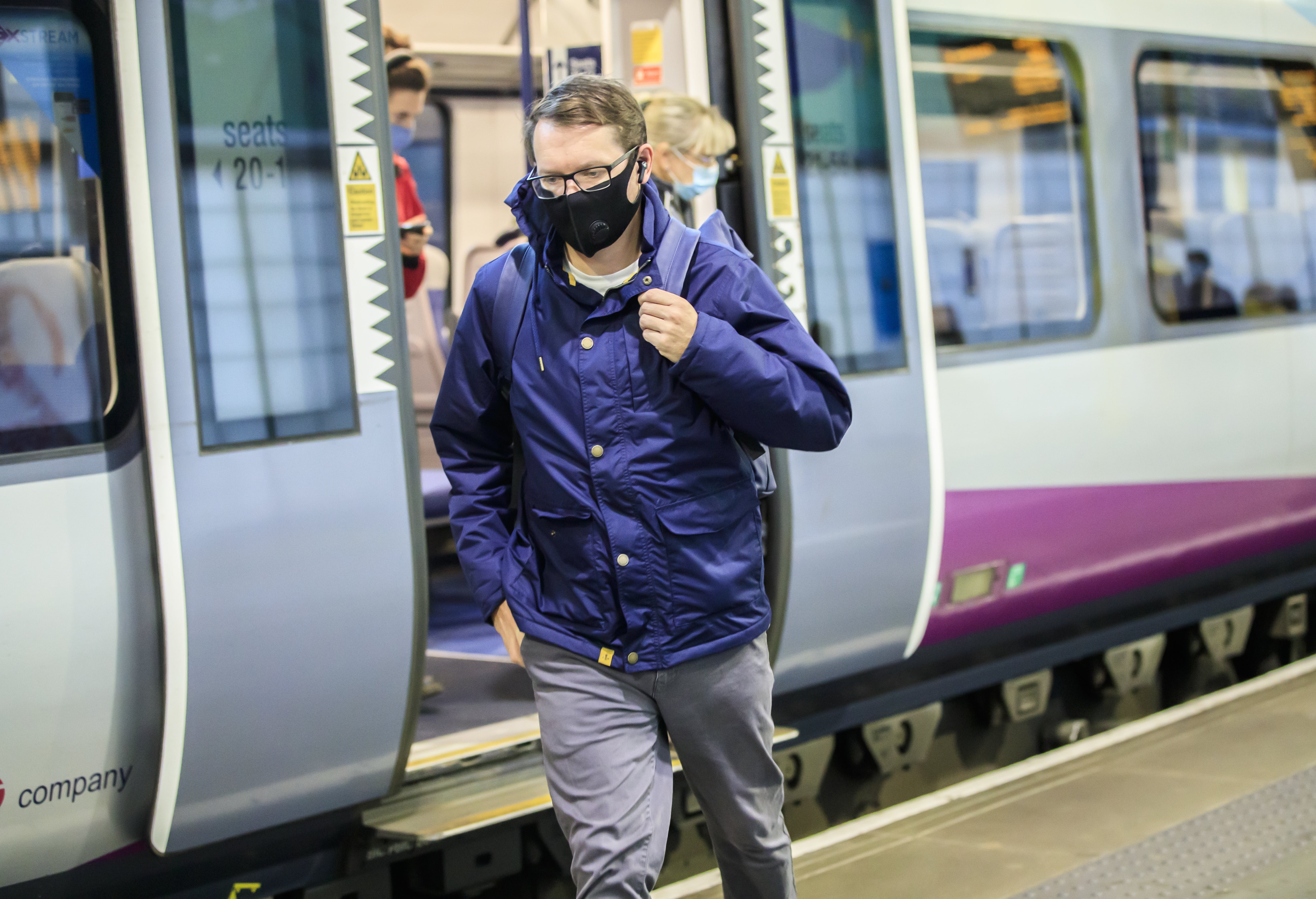Cost of commuting hiked as new rail fares implemented
Passengers have been hit hard by the price increase of up to 3.8% in England and Wales.

Your support helps us to tell the story
From reproductive rights to climate change to Big Tech, The Independent is on the ground when the story is developing. Whether it's investigating the financials of Elon Musk's pro-Trump PAC or producing our latest documentary, 'The A Word', which shines a light on the American women fighting for reproductive rights, we know how important it is to parse out the facts from the messaging.
At such a critical moment in US history, we need reporters on the ground. Your donation allows us to keep sending journalists to speak to both sides of the story.
The Independent is trusted by Americans across the entire political spectrum. And unlike many other quality news outlets, we choose not to lock Americans out of our reporting and analysis with paywalls. We believe quality journalism should be available to everyone, paid for by those who can afford it.
Your support makes all the difference.The largest rise in rail fares in nearly a decade has added more than £100 to the cost of many annual season tickets.
Analysis of fares by the PA news agency shows commuters have been hit hard by the price increase of up to 3.8% in England and Wales.
The Government has been accused of adding to the cost-of-living crisis following the hike in fares.
Examples of increases in season ticket prices include:– Woking to London: Up £136 to £3,664.– Liverpool to Manchester (any route): Up £104 to £2,864.– Gloucester to Birmingham (any route): Up £168 to £4,636.– Neath to Cardiff: Up £68 to £1,920.
Paul Tuohy, chief executive of pressure group Campaign for Better Transport (CBT), claimed the fare rise “will do nothing” to ease the cost-of-living crisis, help the economy or tackle climate change.
He said: “If this Government is serious about shrinking transport’s carbon footprint and growing the economy, it must do more to address the high cost of public transport by prioritising fares reform, introducing more contactless and pay as you go ticketing, and providing a better value flexible commuter ticket to cater to the millions of new hybrid workers.”
CBT calculated it will take seven weeks for a full-time worker in Brighton earning an average salary to pay for their annual season ticket.
A commuter travelling from York into Leeds will have to work for five weeks, while it will take six weeks for a worker travelling from Burton upon Trent, Staffordshire, into Birmingham.
Tutor Megan Loft, 32, who was at Paddington station, told PA: “If services were improving, less people would be as angry.
“The service is only getting worse and prices are increasing. Why?
“I have family in Brighton and Manchester and it is going to be harder to visit them.”
The UK, Scottish and Welsh governments set the cap on rises in regulated fares, which are around half of tickets such as season tickets and off-peak returns on long-distance journeys.
They decided to match this year’s figure with the Retail Prices Index (RPI) measure of inflation for July 2021, which was 3.8%.
This is the steepest increase since January 2013, according to figures from industry body the Rail Delivery Group (RDG).
Fares went up in Scotland on January 24.
Train operators traditionally controlled increases in unregulated fares, but governments have much more influence on their decisions after spending billions of pounds to take on their financial liabilities during the coronavirus pandemic.
A Department for Transport (DfT) spokesman said it has “protected passengers” by delaying the fares rise until two months later than normal, and setting a cap which is “well below current inflation rates”.
Latest figures show RPI in January was 7.8%.
The DfT spokesman added: “We must now look to recoup some of the £14 billion which was spent to keep vital services running throughout the pandemic in a way that is fair for all taxpayers.
“By striking this balance, we will be able to encourage people back on to trains whilst funding the necessary improvements and unprecedented investment that will benefit all those who use our railways.”
Operators are still working to restore all the services cut in December and January amid huge staff shortages due to the Omicron coronavirus variant.
Demand for rail travel is around a third below pre-coronavirus levels.
Anthony Smith, chief executive of passenger watchdog Transport Focus, said it is “crucial the rail industry delivers a punctual and reliable service”.
Hours after the higher fares were introduced on Tuesday morning, Network Rail said a suspected power supply failure caused a “complete loss of signalling” in Ashtead, Surrey.
This caused major disruption to Southern and South Western Railway services during the morning rush hour.
Rail fares in Northern Ireland are set by state-owned operator Translink, which does not use RPI.